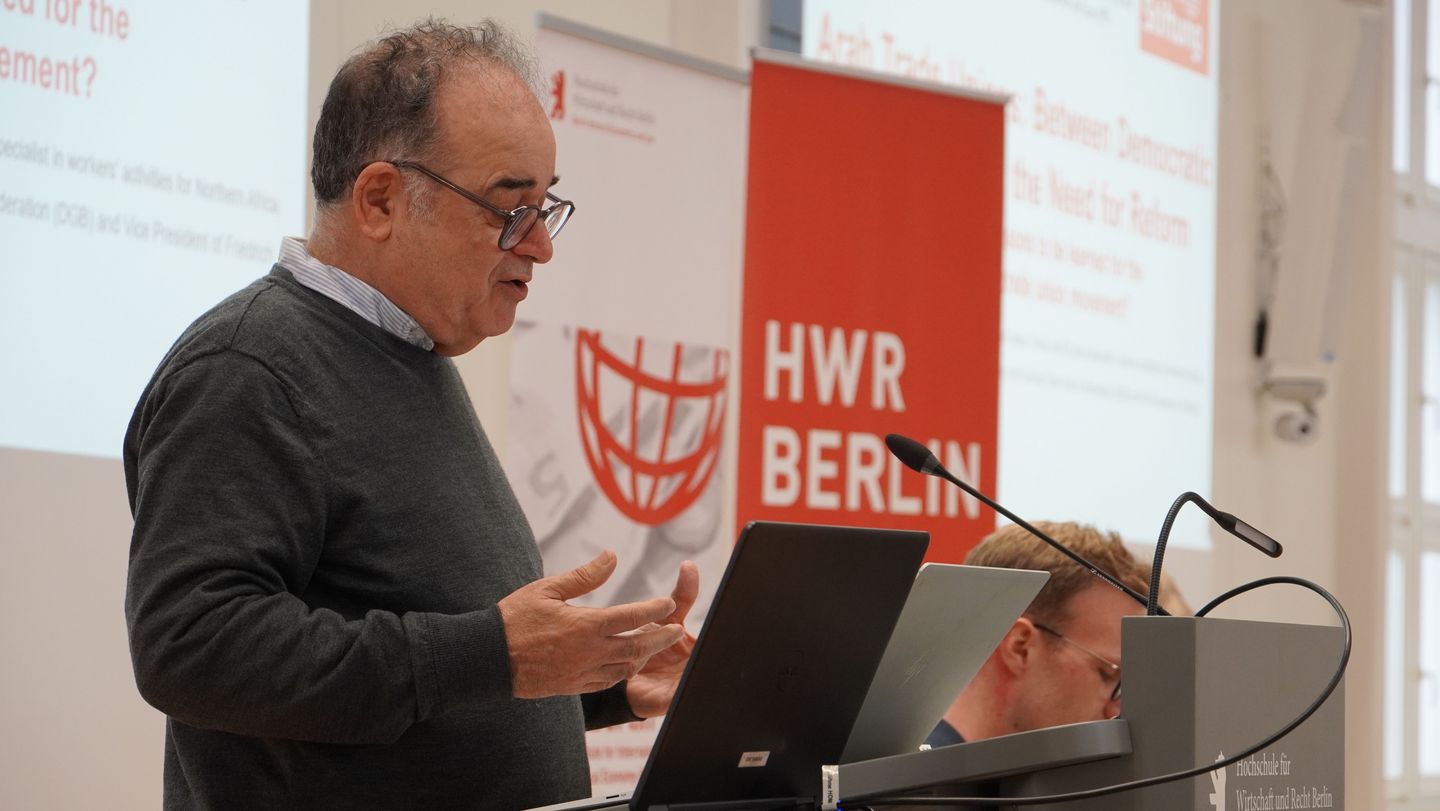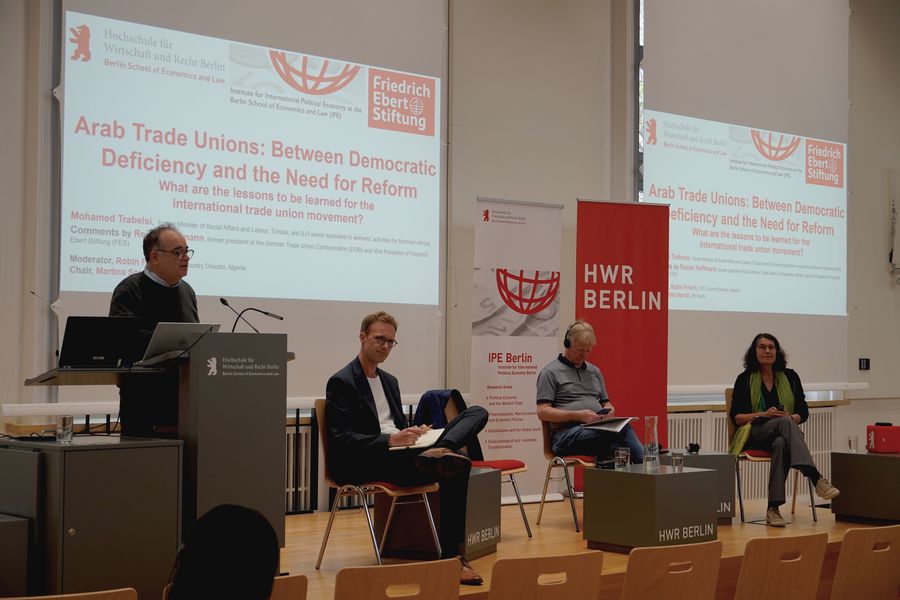Experiences of Arab trade unions struggling for democracy
Mohamed Trabelsi, former Minister of Labor and Social Affairs in Tunisia, spoke at the HWR Berlin about Arab trade unions between democratic deficits and necessary reforms.

In the face of attacks on workers' rights, the dismantling of the welfare state and the restriction of social and democratic rights, the role of trade unions is crucial. The question is not only relevant in the Maghreb region, but also in Europe and other regions.
How can trade unions organize themselves and respond to these challenges? What strategies are needed? What can we learn from the experiences of Arab trade unions?

Mohamed Trabelsi,former Minister of Social Affairs and Labour, Tunisia, and ILO senior specialist in workers' activities for Northern Africa, Robin Frisch, FES Country Director, Algeria, Reiner Hoffmann, former president of the German Trade Union Confederation (DGB) and Vice President of Friedrich Ebert Stiftung (FES) and Prof. Dr. Martina Sproll (HWR Berlin), Foto: Julia Oelkers
Historical review
The history of trade unions in the Arab region was often linked to the anti-colonial struggle, explained Mohamed Trabelsi in his brief historical review. Trade unions also played an important role in the democratic awakening of the Arab Spring. Today, they are in crisis because they have been unable to push through democratic reforms in many countries.
“Trade unions only work in democratic societies,” emphasized Reiner Hoffmann, former DGB Chairman and Vice President of the Friedrich Ebert Foundation (FES). In Europe, trade unions emerged in the course of industrialization. Many people worked in the fossil fuel sector, such as mining and coal. “The strength of trade unions depends on their members,” he said. Today, renewable energies could be a sector in which trade unions in the global South could develop - but only if appropriate and fair prices are paid on the world market.
What makes trade unions stronger?
That was one of the questions the students put to the panel. “They must remain politically independent of governments,” was Trabelesi's answer and “they must always fight for freedom and democracy.”
The event was organized by the Institute for International Political Economy Berlin with the support of the Friedrich Ebert Stiftung (FES)
Further information:
- Degree Programme International Economics
- Degree Programme Political Economy of European Intergration
- Website Institute for International Political Economy Berlin
- Website Friedrich Ebert Stifung